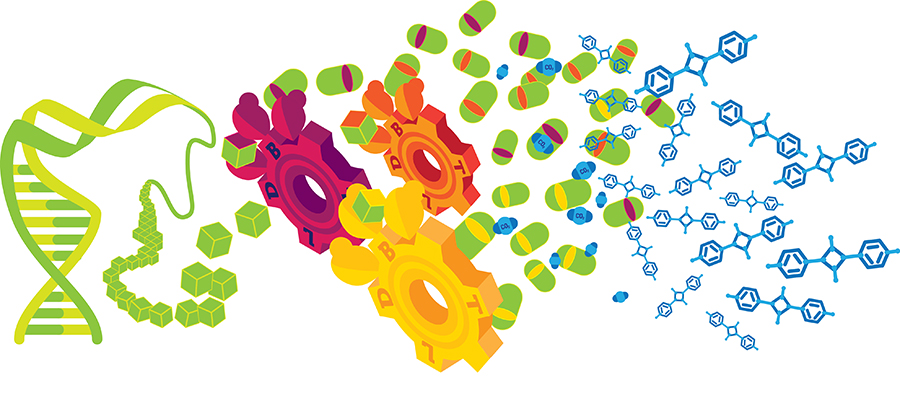
An interdisciplinary, UW-led team of synthetic biologists will embark on a 5-year, $15 million project to engineer microbial genomes that transform CO2 into high-value chemicals.
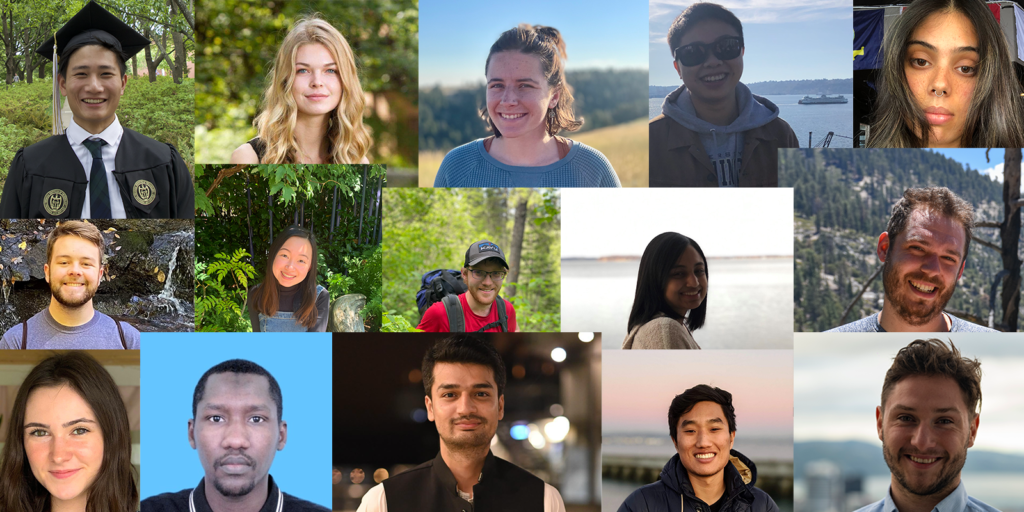
We are thrilled to welcome our 9th cohort of future molecular engineers, our largest cohort of students yet. Learn more about our newest trainees and their current research interests below.
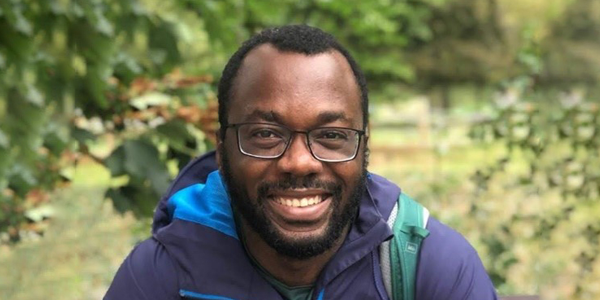
Ayokunle (Ayo) Olanrewaju is assistant professor of mechanical engineering and of bioengineering. His research applies 3D microfabrication, autonomous microfluidics and molecular assays to address medical challenges in treating infectious and chronic diseases, such as HIV, tuberculosis and cancer. He develops technologies for rapid and user-friendly monitoring of medications on an on-going basis to help patients adhere to drug dosing schedules, prevent treatment failure and improve health outcomes.
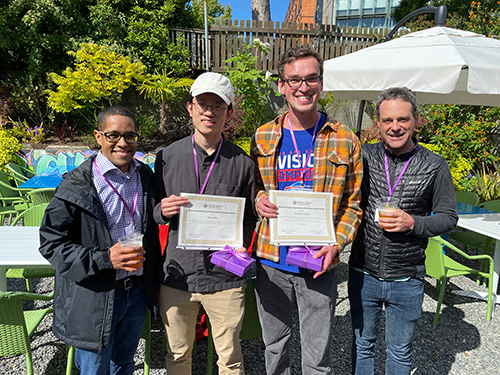
The MolE alumni community continues to grow, with an additional nine students graduating in the 2021-2022 academic year. This year, in recognition of their exemplary scholarship, we presented graduates Will Chen and Ted Cohen our inaugural Distinguished Dissertation Award in Molecular Engineering.
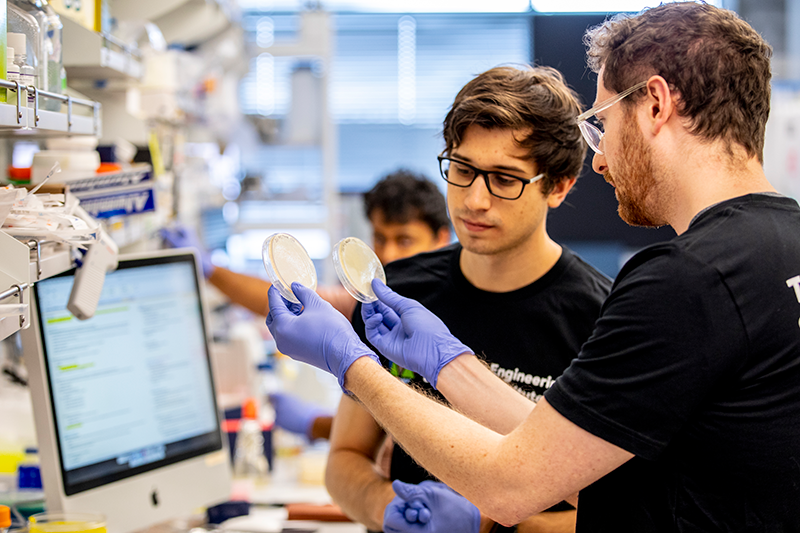
Two recent molecular engineering graduates launched a new startup, Wayfinder Biosciences, to commercialize their revolutionary platform to design RNA molecules that can be used to advance everything from sustainable biomanufacturing to targeted CRISPR therapies.
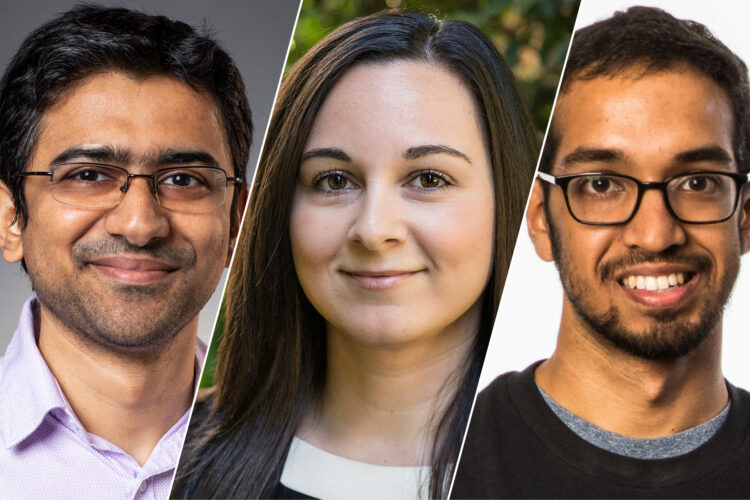
Three UW researchers, including MolES faculty member Eleftheria Roumeli, are exploring ways to make electronics more Earth-friendly.
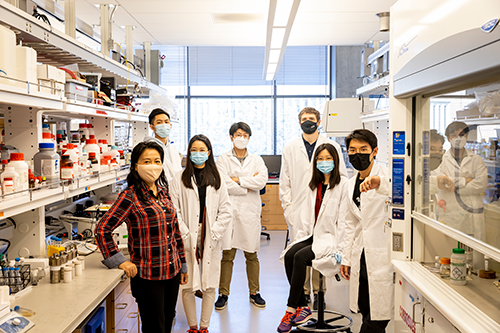
Scientists at the University of Washington have recently developed a new nanoparticle-based drug delivery system that simultaneously delivers chemo- and immune- therapeutics directly to the tumor site, limiting harmful off-target side effects. In a paper published last November in Materials Today, they reported that their multifunctional nanoparticle can inhibit tumor growth and spread, also known as metastasis, in mouse models of triple negative breast cancer, an exceptionally aggressive form of breast cancer with limited treatment options.
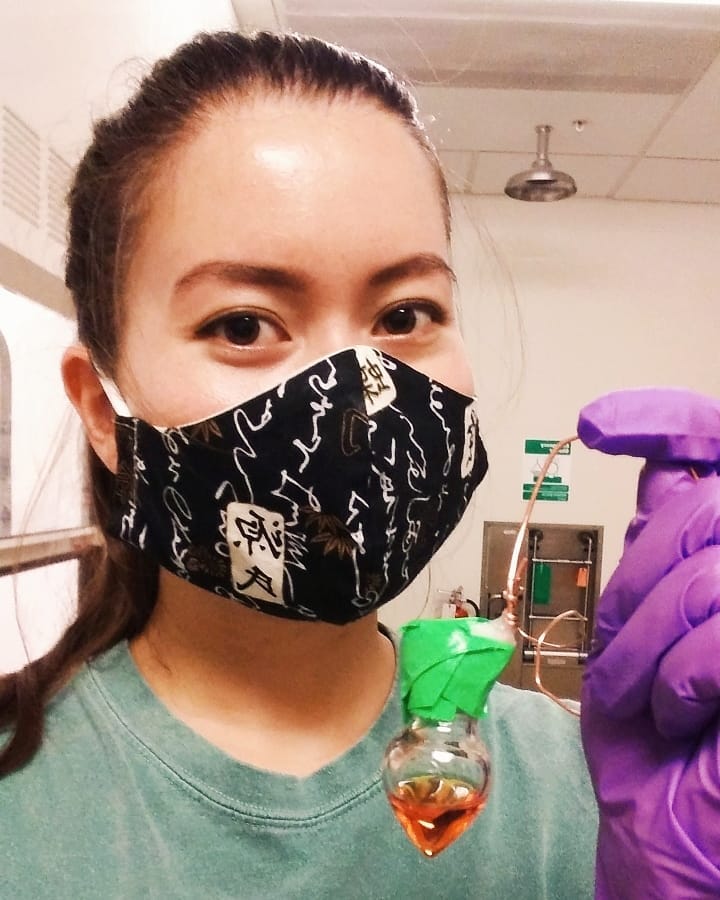
Ayumi Pottenger never planned to study engineering. Here, the third-year molecular engineering (MolE) Ph.D. student reflects on what drew her to the program and where she's headed next.
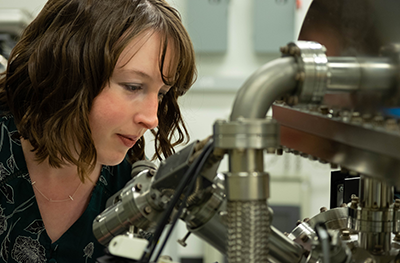
MAF staff scientist Dr. Samantha Young manages the x-ray diffractometer (XRD) and two x-ray photoelectron spectrometers (XPS) in the MAF. Both are instruments that use x-rays to analyze a material, but provide different information. Learn more about Samantha and her work in our Q&A!

Corie L. Cobb, professor of mechanical engineering and the Washington Research Foundation Innovation Professor in Clean Energy, has been selected as recipient of the prestigious Defense Advanced Research Projects Agency (DARPA) Director's Fellowship Award.